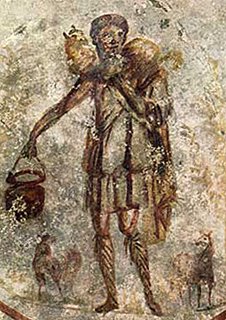 My thinking this week continues to center around the possibilities of a kenotic approach to leadership. D.L. Whiteman (2003, 409) proposes seven leadership practices and values statements informed by a Missiological and Anthropological reading of the values imbedded in the Christian doctrine of the incarnation of Christ as found in the Philippians hymn (2:5-11):
My thinking this week continues to center around the possibilities of a kenotic approach to leadership. D.L. Whiteman (2003, 409) proposes seven leadership practices and values statements informed by a Missiological and Anthropological reading of the values imbedded in the Christian doctrine of the incarnation of Christ as found in the Philippians hymn (2:5-11):1. We start with people where they are, embedded in their culture, and this frequently requires downward mobility on our part.
2. We take their culture seriously, for this is the context in which life has meaning for them.
3. We approach them as learners, as children, anxious to see the world from their perspective.
4. We are forced to be humble, for in their world of culture we have not yet learned the acquired knowledge to interpret experience and to generate social behavior.
5. We must lay aside our own cultural ethnocentrism[1], our positions of prestige and power.
6. To be incarnational means we will be very vulnerable; our defenses will have to go.
7. We make every effort to identify with people where they are, by living among them, loving them, and learning from them.
[1] Ethnocentricity is the human tendency to see the world primarily through the perspective of one's own ethnic social history and culture.
Whiteman, D. L. 2003. Anthropology and Mission: The Incarnational Connection. Missiology 31.4, 397-415.
